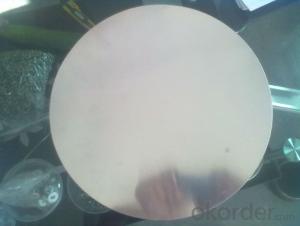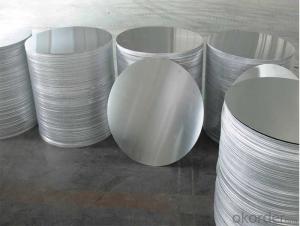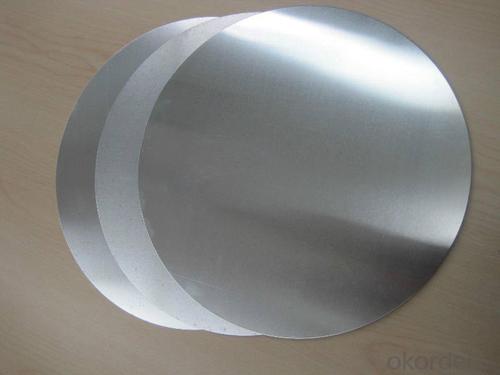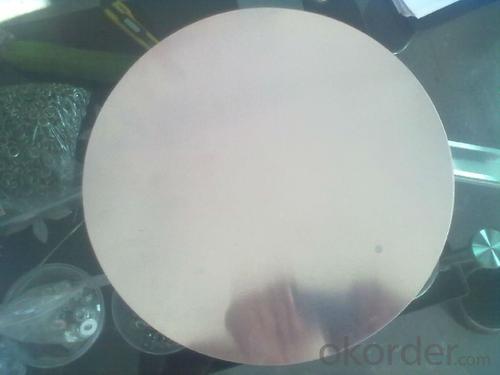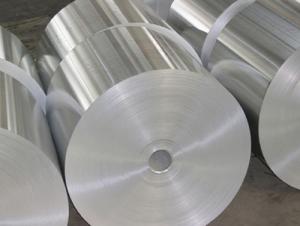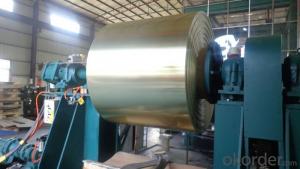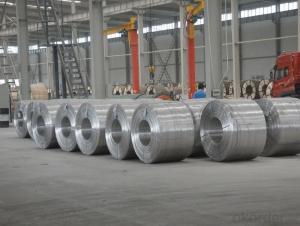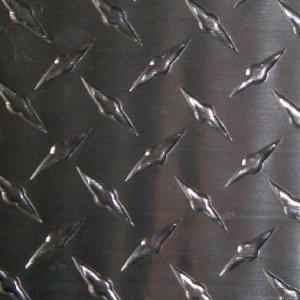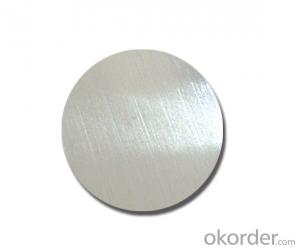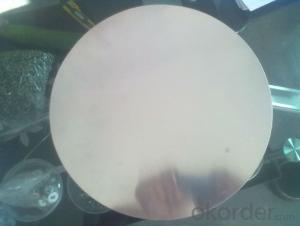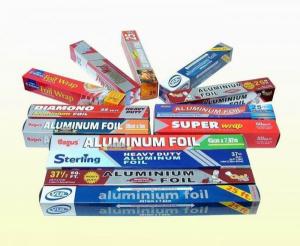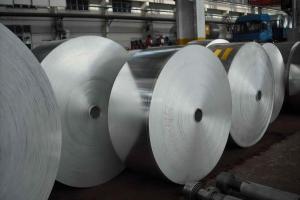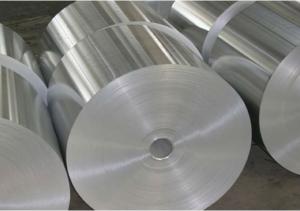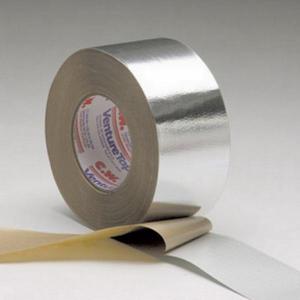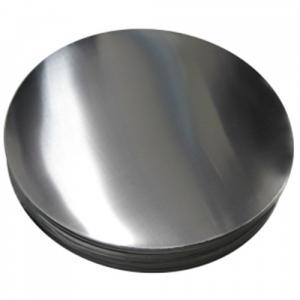Aluminum AA1070 C.C Aluminum Circles for Cookware
- Loading Port:
- Shanghai
- Payment Terms:
- TT OR LC
- Min Order Qty:
- 3 m.t.
- Supply Capability:
- 10000 m.t./month
OKorder Service Pledge
OKorder Financial Service
You Might Also Like
1.Structure of AA1070 C.C Aluminum Circles used for Cookware Description
AA1070 C.C Aluminum Circles used for Cookware is made from aluminum coils 1xxx. AA1070 C.C Aluminum Circles used for Cookware has great ductility, heat conductivity, anti-corrosion and moisture resistance properties.
AA1070 C.C Aluminum Circles used for Cookware are widely used for kitchen wares including fried pans, non-sticky pans, cooking pots,hard anodized cookware, pressure cooker and house hold utensils.
2.Main Features of AA1070 C.C Aluminum Circles used for Cookware
• Superior quality of raw material
• Reasonable and stable chemical composition
• Accurate tolerance
• Goode mechanical property
3.AA1070 C.C Aluminum Circles used for Cookware Images
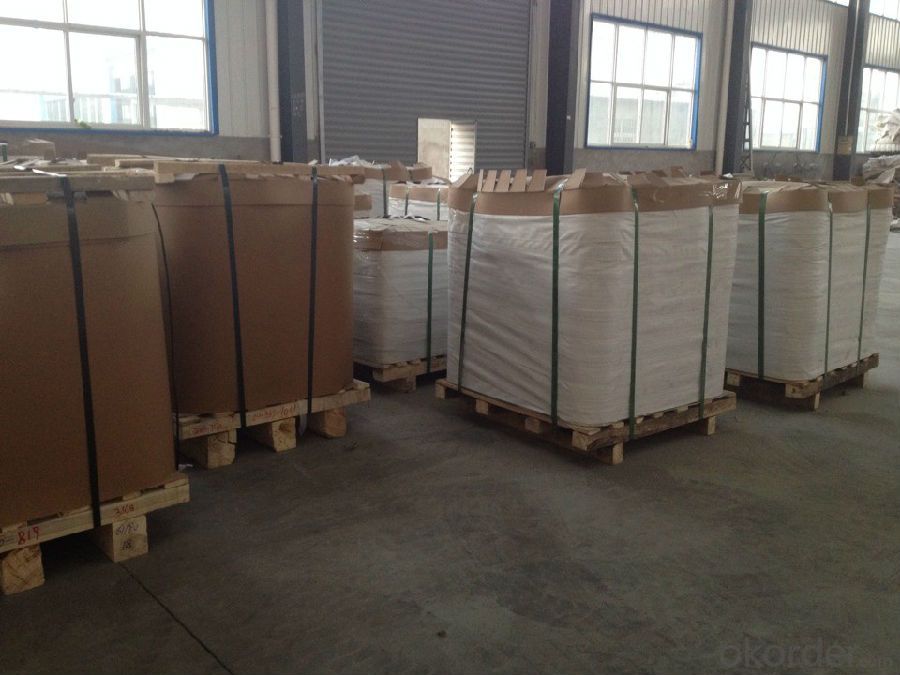
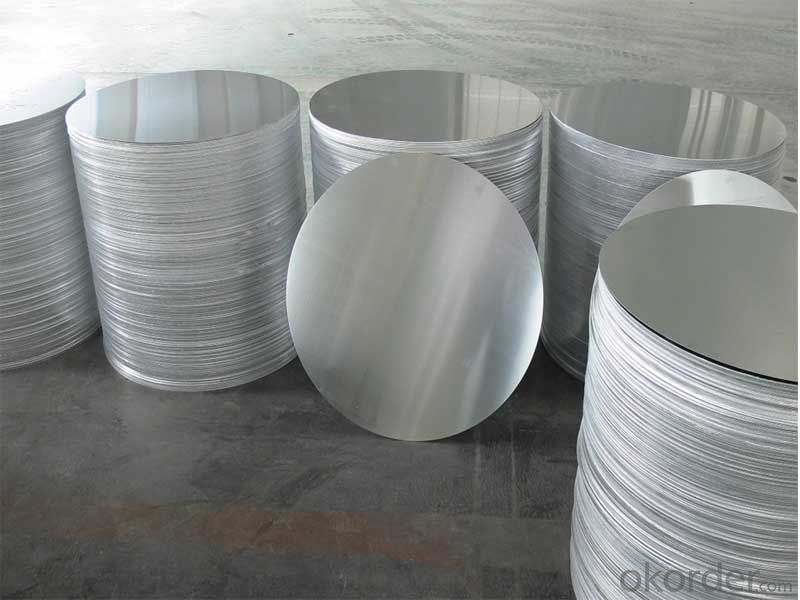
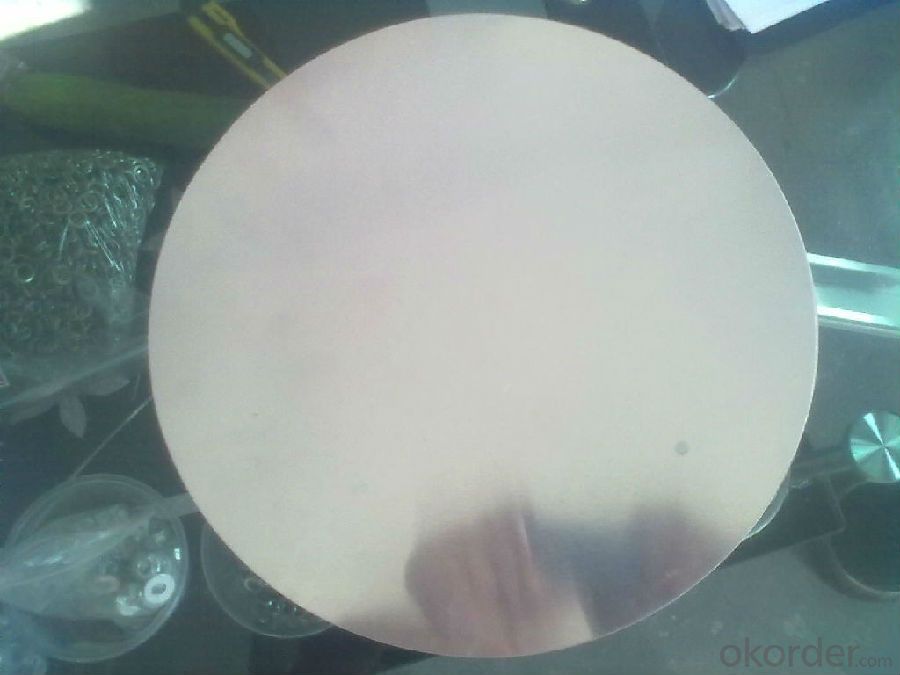
4.AA1070 C.C Aluminum Circles used for Cookware Specification
Alloy | AA1070 |
Temper | H14, H16, H18, H22, H24, H26, H32, O/F |
Thickness | 0.5mm -- 4mm |
Diameter | 200mm -- 1200mm |
Standard | GB/T 3880-2006 |
5. FAQ of AA1060 C.C Aluminum Circles used for Cookware
A.How to guarantee the quality?
Customers are welcome to our mill to visit and check the products. Besides, we can arrange a third party to test AA1070 C.C Aluminum Circles used for Cookware.
B.When will you deliver the products?
AA1070 C.C Aluminum Circles used for Cookware will be delivered within 35 days after receiving advanced payment or original L/C.
- Q: Is it possible to utilize aluminum in the construction of automobiles?
- <p>Yes, aluminum is widely used in automobiles due to its lightweight, high strength, and excellent corrosion resistance. It is commonly found in engine components, body panels, and wheels. The use of aluminum can lead to reduced vehicle weight, which improves fuel efficiency and reduces emissions. Additionally, aluminum's recyclability makes it an environmentally friendly choice for automotive manufacturing.</p>
- Q: Is it possible to recycle aluminum without any loss in quality or performance?
- <p>Yes, aluminum can be recycled indefinitely without any loss in quality or performance. The recycling process does not degrade the material, allowing it to be reused multiple times. This makes aluminum one of the most sustainable materials for recycling. Each recycling saves up to 95% of the energy needed to produce new aluminum from raw materials, reducing the environmental impact significantly.</p>
- Q: What safety measures should be taken into account while handling or working with aluminum?
- <p>When working with aluminum, it's crucial to follow safety precautions to prevent injuries and health risks. Always wear appropriate personal protective equipment (PPE) such as gloves, safety glasses, and a dust mask to protect against aluminum dust. Ensure good ventilation to avoid inhaling aluminum dust or fumes. Use proper tools and equipment to handle aluminum, as it can become sharp and cause cuts. Be cautious when welding or cutting aluminum, as it can produce harmful fumes and sparks. Store aluminum in a dry place to prevent it from reacting with moisture. Lastly, be aware of the fire hazard associated with aluminum dust and take necessary fire safety measures.</p>
- Q: Explain the impact of using recycled aluminum on the environment.
- <p>Using recycled aluminum significantly reduces our environmental footprint. It requires only 5% of the energy needed to produce new aluminum from raw materials, thus conserving energy. Additionally, recycling aluminum reduces greenhouse gas emissions by up to 95% compared to aluminum production from bauxite ore. This lowers air pollution and helps combat climate change. Moreover, recycling aluminum conserves natural resources and reduces the need for mining, which has its own set of environmental impacts, including habitat destruction and water pollution. Overall, recycling aluminum is a sustainable practice that benefits the environment by reducing energy consumption, emissions, and resource extraction.</p>
- Q: This question asks about the potential health hazards that can result from exposure to aluminum.
- <p>Aluminum exposure has been associated with several health risks, although the scientific consensus is not entirely clear due to varying study results. Some potential health risks include neurological disorders such as Alzheimer's disease, although this link is still debated. Aluminum may also contribute to bone diseases, as it can interfere with calcium absorption. There are concerns about aluminum's role in kidney dysfunction and possible links to certain types of cancer. However, it's important to note that the human body naturally excretes aluminum, and only a small fraction of ingested aluminum is absorbed. More research is needed to establish definitive links between aluminum exposure and health outcomes.</p>
- Q: What precautions should be taken when using aluminum containers for food and beverages to ensure safety?
- <p>When using aluminum containers for food and drink, safety measures include avoiding prolonged storage of acidic or alkaline foods, as they can cause aluminum leaching. Do not heat aluminum containers in a microwave or expose them to high temperatures, as this can also lead to aluminum release. Regularly inspect containers for signs of wear or damage, as these can increase the risk of contamination. Always use food-grade aluminum containers and avoid using them for non-food items. Washing aluminum containers with mild detergents and avoiding abrasive cleaners can also help maintain their integrity and safety.</p>
- Q: Explain how the incorporation of titanium into aluminum alloys influences their properties and strength.
- <p>Adding titanium to aluminum alloys significantly enhances their mechanical properties and strength. Titanium increases the alloy's strength, hardness, and resistance to corrosion. It also improves the alloy's creep resistance, which is crucial for high-temperature applications. The addition of titanium refines the grain structure, leading to better ductility and toughness. Moreover, titanium helps to reduce the likelihood of stress-corrosion cracking, making the alloy more reliable in aggressive environments. Overall, titanium-aluminum alloys are stronger, more durable, and have a wider range of applications than pure aluminum or simple aluminum alloys.</p>
- Q: What are the potential dangers of utilizing high-purity aluminum powders in industrial settings?
- <p>Yes, there are risks associated with using high-purity aluminum powders in manufacturing processes. These powders can be highly reactive, especially when in fine particle form, and pose a risk of dust explosions if they come into contact with an ignition source. Additionally, aluminum dust can be a respiratory hazard, potentially causing health issues if inhaled. Proper handling, storage, and safety measures are crucial to mitigate these risks.</p>
- Q: Is it possible to employ aluminum for the creation of innovative packaging materials?
- <p>Yes, aluminum is highly suitable for making new types of packaging materials due to its lightweight, malleability, and corrosion resistance. It is often used in food and beverage cans, pharmaceutical packaging, and even flexible packaging films. Aluminum's recyclability also makes it an environmentally friendly choice for sustainable packaging solutions. Innovations in aluminum packaging continue to emerge, focusing on improved barrier properties, lighter weight, and enhanced recycling capabilities.</p>
- Q: Is it possible to recycle aluminum from old products to create new ones?
- <p>Yes, aluminum can be recycled to make new products from old ones. Recycling aluminum is a highly efficient process that requires only 5% of the energy needed to produce new aluminum from raw materials. This process is not only environmentally friendly but also economically viable. Recycled aluminum maintains its quality and can be used to create a wide range of new products, from cans and packaging to automotive parts and construction materials.</p>
Send your message to us
Aluminum AA1070 C.C Aluminum Circles for Cookware
- Loading Port:
- Shanghai
- Payment Terms:
- TT OR LC
- Min Order Qty:
- 3 m.t.
- Supply Capability:
- 10000 m.t./month
OKorder Service Pledge
OKorder Financial Service
Similar products
Hot products
Hot Searches
Related keywords

